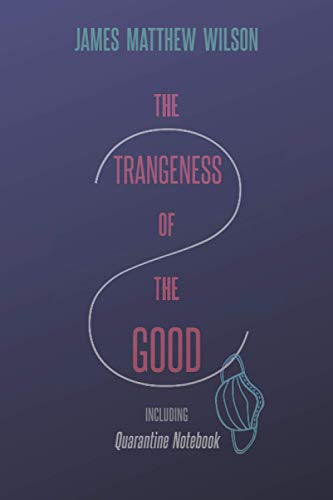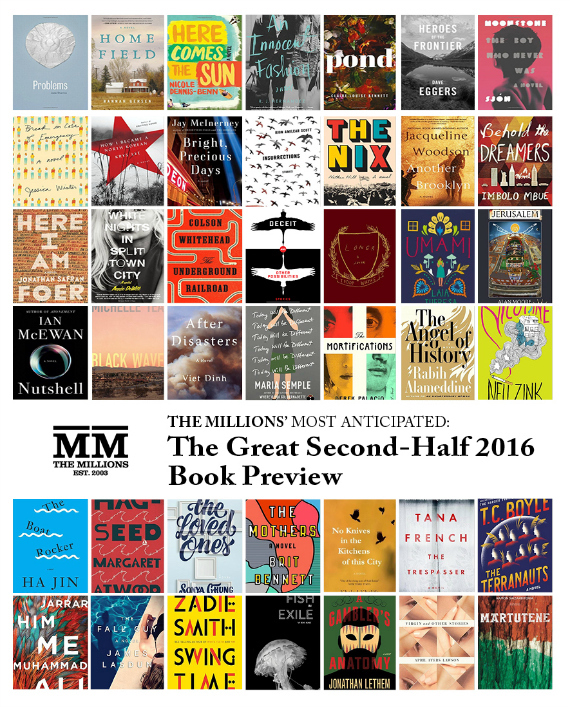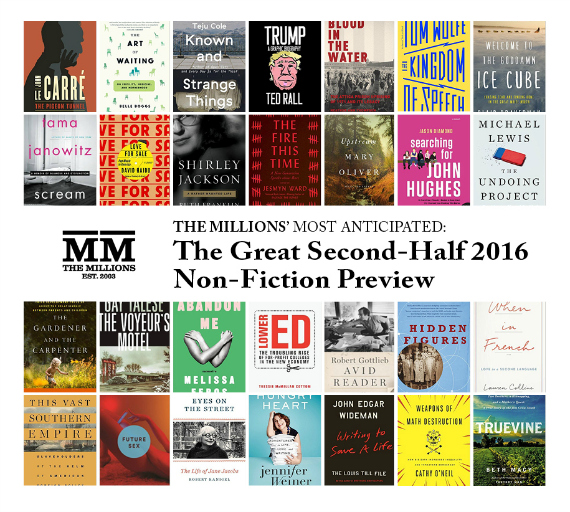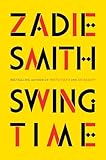Here are four notable books of poetry publishing this month.
Nothing but the Music by Thulani Davis
 “Well, this isn’t poetry, I don’t know what it is, but keep writing it.” Elizabeth Hardwick’s advice to her student, a young Thulani Davis, resonated: Davis stepped aside from fiction for some time, and began writing poetry, including work that was performed with Ntozake Shange and Gylan Kain. Nothing but the Music collects work from 1974-1992, often originally performed, with frequent footnotes of date and venue. “I don’t wanna riot / don’t wanna riot / it’s Saturday morning / and I wanna dance,” Davis thrums in “It’s Time for the Rhythm Revue,” a poem that begins with play and ends with resonance: “a kid from Brownsville asked me / had I ever seen any violence / that’s why I clean my house / listening to songs from the past / times when no one asked anyone / if they’d seen a town burn / cause baby everybody had.” In “Zoom (the Commodores),” the narrator recalls driving through a thick thunderstorm to Atlantic City to see the Spinners in concert, and when she discovered the Commodores, the “tasteless fleshiness of the seventies,” a pulpy feel she still recalls: “give me the tacky grandeur of Atlantic City / on the Fourth of July / the corny promises of Motown / give me the romance & the Zoom.” A vibrant and yet smooth collection, steeped in rhythm.
“Well, this isn’t poetry, I don’t know what it is, but keep writing it.” Elizabeth Hardwick’s advice to her student, a young Thulani Davis, resonated: Davis stepped aside from fiction for some time, and began writing poetry, including work that was performed with Ntozake Shange and Gylan Kain. Nothing but the Music collects work from 1974-1992, often originally performed, with frequent footnotes of date and venue. “I don’t wanna riot / don’t wanna riot / it’s Saturday morning / and I wanna dance,” Davis thrums in “It’s Time for the Rhythm Revue,” a poem that begins with play and ends with resonance: “a kid from Brownsville asked me / had I ever seen any violence / that’s why I clean my house / listening to songs from the past / times when no one asked anyone / if they’d seen a town burn / cause baby everybody had.” In “Zoom (the Commodores),” the narrator recalls driving through a thick thunderstorm to Atlantic City to see the Spinners in concert, and when she discovered the Commodores, the “tasteless fleshiness of the seventies,” a pulpy feel she still recalls: “give me the tacky grandeur of Atlantic City / on the Fourth of July / the corny promises of Motown / give me the romance & the Zoom.” A vibrant and yet smooth collection, steeped in rhythm.
The Strangeness of the Good by James Matthew Wilson
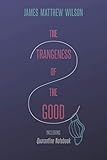 Wilson aptly begins with “After the Ice Storm,” when a rough storm splits trees and knocks out the power: “One night was all it took to give / What men had built back to the earth.” The piece establishes a tone of something greater; a grander, more mysterious presence than quotidian life. That sense also permeates “Those Days of Weighted Solitude,” a poem that ponders a narrator’s melancholy past. He remembers walking down the “quiet avenues of Sunday morning” and “passing by the large, neglected houses” on his way to church. “Along these ways,” he recalls, “I’d drag myself, head bowed, / The leaf bed softening my steps to silence.” He “bore not just a sense of loneliness, / But sorrow and remorse, and would have gone / Alone, in any case, ashamed to share / With anyone this walk of half-belief.” One his way home, the “Eucharist a dry taste in my mouth,” he “did not know that there would be whole years, / Where neither grief nor joy could pound my chest.” Wilson has an acute sense of the space between faith and doubt—the lingering latitude of weary belief. The book is anchored by “Quarantine Notebook,” a masterful sequential poem that spans March 15-May 17, 2020. The poem is one of the finest, most focused pieces to come thus far from the pandemic. In the sequence’s first poem, a neighbor’s tree has just bloomed: “White blossoms hang like egg shells in the air, / While down the road the restaurants shut their doors.” The narrator drearily goes to a store to buy bags of mulch, and then “toss / Them one by one like limp, resistless bodies.” He begins to shovel and spread the mulch, doing “the small, familiar, yearly tasks / That after a long winter one must do / To overcome its slow decay.” Spring arrives, but without its requisite joy. Elsewhere in the sequence, Wilson writes of celebrating Mass at home, the churches shuttered, and there’s a curiously cavernous, quiet feel to the homebound ritual. In a later poem, he goes to help with Mass at the parish when it is recorded on a Saturday. The next morning, while making pancakes for his children, the virtual Mass plays in the kitchen. His children seem him on the screen. He wonders why “one curious miracle / In many of the saints’ lives is the act / Of bilocation”: the self in two settings. He concludes that “we all want / To be both fully present in the flesh / And yet give some clue that our spirits can / Stretch out beyond themselves, can penetrate / The lives of others in a real communion.” We could use such transcendence right now.
Wilson aptly begins with “After the Ice Storm,” when a rough storm splits trees and knocks out the power: “One night was all it took to give / What men had built back to the earth.” The piece establishes a tone of something greater; a grander, more mysterious presence than quotidian life. That sense also permeates “Those Days of Weighted Solitude,” a poem that ponders a narrator’s melancholy past. He remembers walking down the “quiet avenues of Sunday morning” and “passing by the large, neglected houses” on his way to church. “Along these ways,” he recalls, “I’d drag myself, head bowed, / The leaf bed softening my steps to silence.” He “bore not just a sense of loneliness, / But sorrow and remorse, and would have gone / Alone, in any case, ashamed to share / With anyone this walk of half-belief.” One his way home, the “Eucharist a dry taste in my mouth,” he “did not know that there would be whole years, / Where neither grief nor joy could pound my chest.” Wilson has an acute sense of the space between faith and doubt—the lingering latitude of weary belief. The book is anchored by “Quarantine Notebook,” a masterful sequential poem that spans March 15-May 17, 2020. The poem is one of the finest, most focused pieces to come thus far from the pandemic. In the sequence’s first poem, a neighbor’s tree has just bloomed: “White blossoms hang like egg shells in the air, / While down the road the restaurants shut their doors.” The narrator drearily goes to a store to buy bags of mulch, and then “toss / Them one by one like limp, resistless bodies.” He begins to shovel and spread the mulch, doing “the small, familiar, yearly tasks / That after a long winter one must do / To overcome its slow decay.” Spring arrives, but without its requisite joy. Elsewhere in the sequence, Wilson writes of celebrating Mass at home, the churches shuttered, and there’s a curiously cavernous, quiet feel to the homebound ritual. In a later poem, he goes to help with Mass at the parish when it is recorded on a Saturday. The next morning, while making pancakes for his children, the virtual Mass plays in the kitchen. His children seem him on the screen. He wonders why “one curious miracle / In many of the saints’ lives is the act / Of bilocation”: the self in two settings. He concludes that “we all want / To be both fully present in the flesh / And yet give some clue that our spirits can / Stretch out beyond themselves, can penetrate / The lives of others in a real communion.” We could use such transcendence right now.
The Candlelight Master by Michael Longley
 “The most urgent political problems are ecological,” Longley has said: “how we share the planet with the plants and the other animals. My nature writing is my most political.” Born in Belfast in 1939, Longley has demonstrated that so much of writing “is adoration. For me, celebrating the wildflowers or the birds is like a kind of worship.” This worship is based in a sentiment of dirt and death; a poetics of natural cycles, of human as earth. Longley follows The Song of Amergin with his own affirmation through litany: “I am the pipistrelle bat / At home among constellations. / I am the raindrop enclosing / Fairy flax or brookweed.” Longley’s is a wildly genuine voice; a poet whose talk of mortality is calming. We are here, and then we are not, and yet we live on in the love of others. “I hear the sandpiper from years ago,” he writes, “Just there, at the end of the dunes, a peep / Where the lost burial mound used to be.” He writes of his granddaughter, who “spotted tadpoles / In the rainwater puddle / Under the rustling cattle-grid / That marks a boundary between / Thallabaun and Corragaun.” She returns in the book, prodding him with child-questions: “Which one of my feet is your favourite?” He answers, as a poet: “The one stepping over a skylark’s / Or a ringed-plover’s nest, I’d say.”
“The most urgent political problems are ecological,” Longley has said: “how we share the planet with the plants and the other animals. My nature writing is my most political.” Born in Belfast in 1939, Longley has demonstrated that so much of writing “is adoration. For me, celebrating the wildflowers or the birds is like a kind of worship.” This worship is based in a sentiment of dirt and death; a poetics of natural cycles, of human as earth. Longley follows The Song of Amergin with his own affirmation through litany: “I am the pipistrelle bat / At home among constellations. / I am the raindrop enclosing / Fairy flax or brookweed.” Longley’s is a wildly genuine voice; a poet whose talk of mortality is calming. We are here, and then we are not, and yet we live on in the love of others. “I hear the sandpiper from years ago,” he writes, “Just there, at the end of the dunes, a peep / Where the lost burial mound used to be.” He writes of his granddaughter, who “spotted tadpoles / In the rainwater puddle / Under the rustling cattle-grid / That marks a boundary between / Thallabaun and Corragaun.” She returns in the book, prodding him with child-questions: “Which one of my feet is your favourite?” He answers, as a poet: “The one stepping over a skylark’s / Or a ringed-plover’s nest, I’d say.”
Heaven Beneath by Anne Marie Macari
 In an essay about the lyric impulse in a time of extinction, Macari has wondered how the lyric form “crosses, even erases, boundaries, connects us to the other and to other worlds, helping us enter the ineffable, to let go briefly our false sense of dominion or safety.” She channels this kenotic gesture in her new book, and follows her lyrics to parts of herself that have drifted away. In one poem, the narrator laments that “I know less than when I was young.” Elsewhere she airily and earnestly writes “Each day I start out I don’t know / where I am, stay with me if you can.” There’s a longing that bursts beneath these lines, as in “I Feel the Need of a Deeper Baptism,” in which she wishes “to be with nettles and thorns / to be with tree stumps, withered fruit, // to be with the drowning dog.” Another poem of the same title, she again affirms: “I feel the need of the hole / in sand that froths // when water’s called back.” Her poems want to stay there, above and alive, as she writes in “Yielding and Simple”: “Don’t go down into heaven, don’t go down / to heaven’s woods, where / deer lead the way into circles // of birch, through circles and shadows, too fast / to follow.” Perhaps, as she suggests in “Hummingbird Bones,” our mortality is what weds us with the natural world. She thinks of how a child “makes a nest of her palm,” a gesturing cradle for life to rest in—in the same way “a small box, in a museum cabinet” is a resting place for bones. “One day,” as she writes in a later poem, “I’ll let go // this hunger and thirst / to find you’ve / been here all // along.”
In an essay about the lyric impulse in a time of extinction, Macari has wondered how the lyric form “crosses, even erases, boundaries, connects us to the other and to other worlds, helping us enter the ineffable, to let go briefly our false sense of dominion or safety.” She channels this kenotic gesture in her new book, and follows her lyrics to parts of herself that have drifted away. In one poem, the narrator laments that “I know less than when I was young.” Elsewhere she airily and earnestly writes “Each day I start out I don’t know / where I am, stay with me if you can.” There’s a longing that bursts beneath these lines, as in “I Feel the Need of a Deeper Baptism,” in which she wishes “to be with nettles and thorns / to be with tree stumps, withered fruit, // to be with the drowning dog.” Another poem of the same title, she again affirms: “I feel the need of the hole / in sand that froths // when water’s called back.” Her poems want to stay there, above and alive, as she writes in “Yielding and Simple”: “Don’t go down into heaven, don’t go down / to heaven’s woods, where / deer lead the way into circles // of birch, through circles and shadows, too fast / to follow.” Perhaps, as she suggests in “Hummingbird Bones,” our mortality is what weds us with the natural world. She thinks of how a child “makes a nest of her palm,” a gesturing cradle for life to rest in—in the same way “a small box, in a museum cabinet” is a resting place for bones. “One day,” as she writes in a later poem, “I’ll let go // this hunger and thirst / to find you’ve / been here all // along.”




